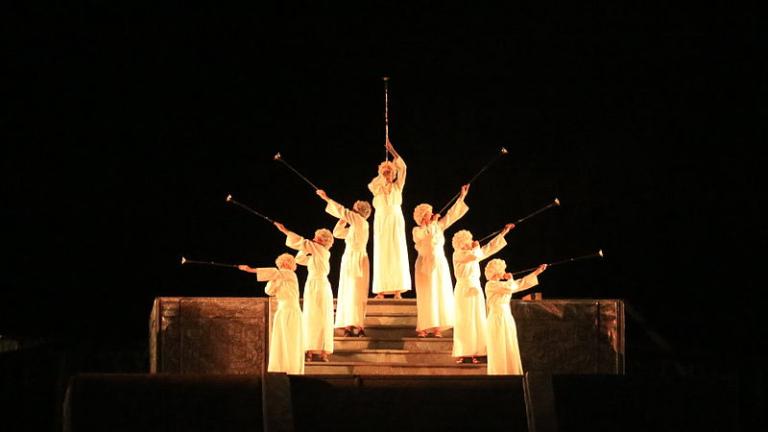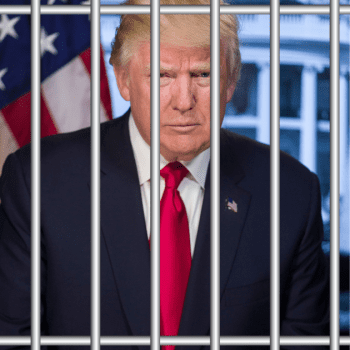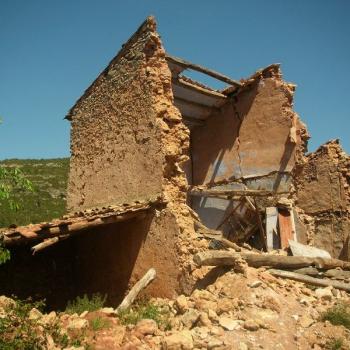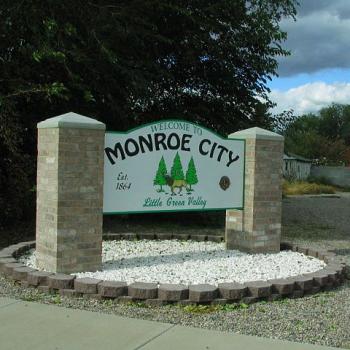
(Tom Lovell, LDS.org)
I would like to commend two recent blog entries by the redoubtable Jeff Lindsay to your attention. It seems particularly fitting to do so as we’re about to enter a new year for the “Come, Follow Me” curriculum of the Church of Jesus Christ of Latter-day Saints, a curriculum that will be focused on the Book of Mormon:
“Nephi’s Three-day Journey into the Wilderness: The Natural vs. the Naturalistic Reading”
“The Glue of Forgiveness and the Anti-Nephi-Lehies (the People of Ammon)”

(Wikimedia Commons public domain)
A few days before Christmas, somebody in Modesto, California — I don’t know who it was — sent me a copy of a small and very accessible book that I have been reading since its arrival: Hadley Vlahos, The In-Between: Unforgettable Encounters During Life’s Final Moments (New York: Ballantine Books, 2023). Ms. Vlahos is a still-young R.N., born and raised in Florida (I think) and still based there, and specifically a hospice nurse who attends to people who are fatally ill and in the last stages of their lives. Despite what the title might seem to suggest, it isn’t primarily about encounters with the spirit world, although she relates a few brief experiences that certainly seem to suggest such encounters. And, although it’s chiefly focused on her patients, it’s also quietly autobiographical, telling about her somewhat unlikely path to a rather unusual career that she now regards as very much her calling.
Although she had attended church faithfully in her earlier life, Hadley had pretty much lost her faith and her interest in religion by the time she went off to college. Coming home after her freshman year, she found that she was pregnant. She was devastated. She had expected to fall in love with somebody in college, graduate, get married, have a couple of children, and eventually settle down in a nice little house near the beach with a white picket fence. She had intended to become a writer.
Now, she thought, she would get an abortion. Nobody really needed to know and, that way, she might still be able to have the life of her dreams.
The next morning was Sunday and, rather on a whim and not wanting to be alone with her dismal thoughts, she asked her recently-divorced mother if she could tag along with her to church. It was a church that Hadley had never attended.
We found a seat near the back and sang along to the hymns. I was distracted, bored, and wondered why I had come.
Finally the priest, Father Tom, an older man wearing silky robes, raised his hands to the sky, holding a Bible in one hand and a notebook in the other. After a few moments, he placed both down on the podium in front of him.
He stared down at the open books in complete silence, then finally closed the notebook and began speaking. “I had a sermon planned for today. I spent an entire day writing it, but God is telling me I have someone here to speak to.”
I rolled my eyes, thinking this was just a cheap way to keep people’s attention.
“God’s plan can sometimes feel confusing,” he began. “Many times we might find ourselves saying, Why me, God? Or, Why couldn’t you have given me their life instead? It looks so much easier.”
Well, that does apply to me, I thought, but I’m sure it applies to half the people in this room as well.
“On my way inside, I was stopped by a couple with two children,” he continued. “They asked me to take their picture, and as I was taking it I was spoken to. Someone in here yearns for this couple’s life. They want the white picket fence — to graduate college and get married, have two kids, and live happily ever after. But that’s not what God needs them for.”
I watched my mom out of the corner of my eye as he spoke, but she never took her eyes off of Father Tom. I began picking at my chipped fingernail polish.
“You’re going to have to give up your ideal life in order to lives the life planned for you. You’re going to have to give up your sorority, your college life, and this path you’re currently on.”
I blatantly looked at my mom this time, only to see that her mouth was hanging open in shock. I was shocked, too, because now this was very specific to my situation. But as I glanced around the room, I saw many girls my age.
“You need to have this baby,” he continued. All right, what is going on?! I wondered. This was way too close to home. I glared at my mom, thinking she had somehow orchestrated this, but she swears to this day that she never said a word to anyone in the church and did not have a clue that I would come with her that morning.
“Life is not going to be easy at first, but this is the life planned for you and it will be worth it,” Father Tom finished.
As my mom and I walked out of the church, I felt more confused than ever. We rode home in silence, and I spent every waking moment between then and Monday agonizing over my choice.
On Monday morning, I held the phone number of the abortion clinic in my hands, but I couldn’t bring myself to call. What if Father Tom was right? What if this was the path for me? I knew life wouldn’t be easy if I kept the baby — and it certainly wouldn’t be the life I had imagined.
The days turned into weeks, and I never called the clinic. My mom and I didn’t talk about it until one day when she told me I needed to make a doctor’s appointment. I was starting to show, and the window for me to decide was rapidly closing.
As I called the ob-gyn for a prenatal appointment, my fate seemed sealed. In that moment, I felt like everything was going to be okay. Somehow, in the place I least expected it, I had found comfort. (59-61)
Now, I should frankly state my belief that divine inspiration is possible and that it is a reality. I’ve experienced it myself on a few notable and distinct occasions, as have others that I know. With that question settled, though, another question (for Latter-day Saints) is whether those outside of the Church can receive it. To me, the teaching of the scriptures is absolutely clear on this point: Yes, they can. In fact, the entire missionary approach of the Church seems to me to be premised upon the expectation that they can. And the story above, if Hadley Vlahos has related it accurately, appears to illustrate such an occurrence, in which inspiration was received by a clergyman of a different Christian denomination. I’m entirely comfortable with that.

















